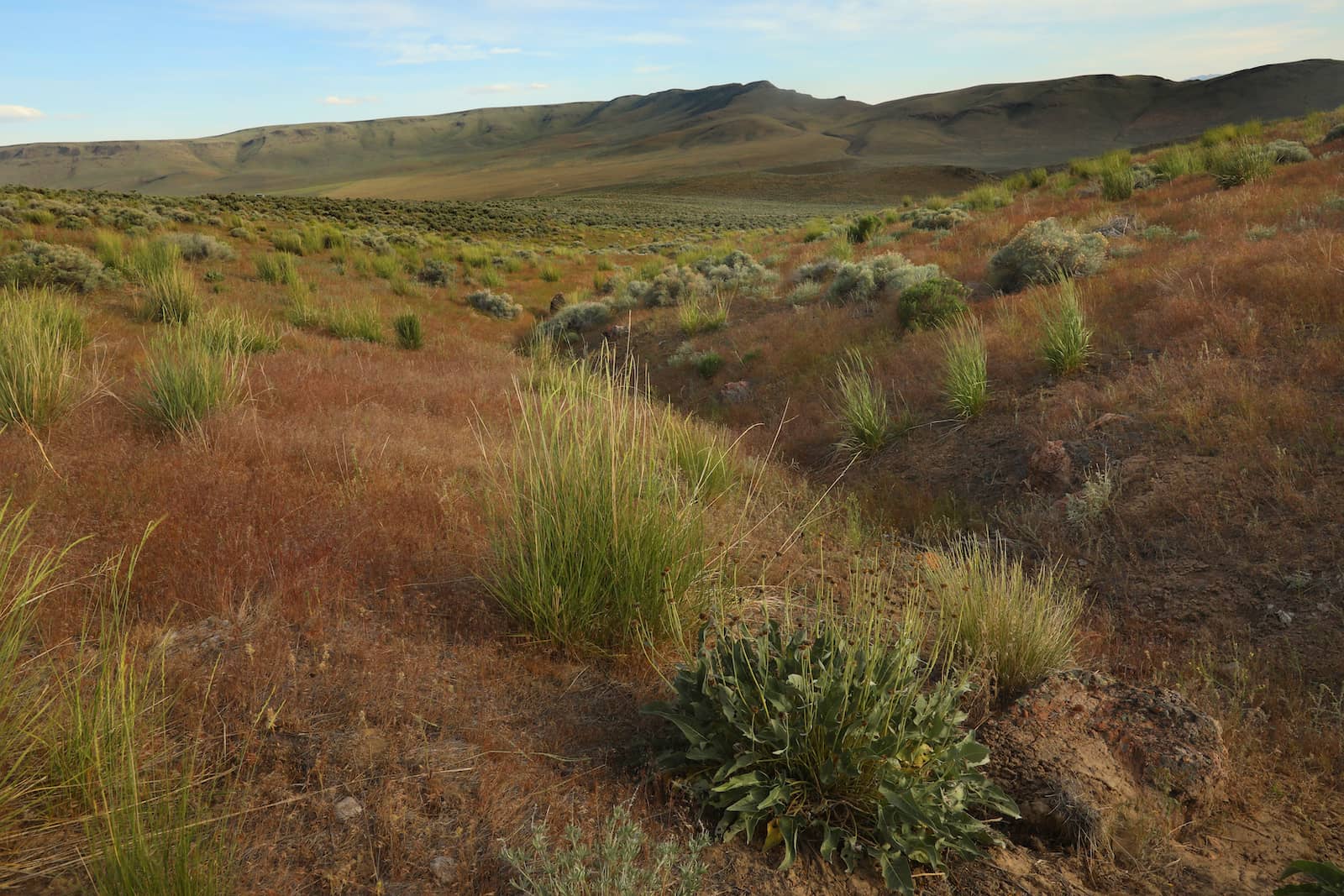The final state-level permits required for the controversial Thacker Pass lithium mine in Nevada were issued on Friday, moving it another step closer to operation as the largest lithium mine in the United States.
The final obstacle to the mine remains a federal lawsuit filed by a coalition of nearby Indigenous communities, environmental groups, and a local rancher. The suit alleges that when the Bureau of Land Management, or BLM, approved the project in January of 2021, the approval was based on a flawed environmental review and was rushed through without adequate consultation of tribes, as required by law.
According to Lithium Americas Corporation, the company behind the mine, a decision on the lawsuit is expected in September 2022.
The soft clay in the ground below Thacker Pass, located about 50 miles south of the Nevada-Oregon border, is rich in lithium. Lithium Americas Corporation says it can generate up to 60,000 metric tons of battery-grade lithium from the mine each year. That’s nearly two times the amount of lithium the U.S. used in 2020, but only 20% of projected demand by 2030.
Lithium-ion batteries are a key component of the U.S.’s plan to decarbonize, since they power electric vehicles and are increasingly being used to store energy generated by wind and solar. Soon after taking office, President Biden issued an executive order focused on making supply chains, including the battery supply chain, more resilient. In early February, the Department of Energy announced it would make $2.9 billion available to fund projects that bolster domestic battery manufacturing and recycling.
Development of the Thacker Pass mine has been contentious. On January 15, 2021, the BLM approved the project. A few weeks later, local cattle rancher Edward Bartell sued the federal government, alleging that the environmental impact statement BLM relied upon was “one sided, deeply flawed, and incomplete,” and underestimated the effects on groundwater and streams. Bartell was soon joined by several conservation groups, who argued that BLM had ignored a wide range of environmental impacts, including groundwater contamination and harm to the greater sage-grouse, in a rush to approve the project.
Several tribes and Native American organizations also oppose the Thacker Pass mine. During the summer of 2021, a group called the People of the Red Mountain, the Burns Paiute Tribe, and the Reno-Sparks Indian Colony intervened in the lawsuit filed by Bartell and the conservation groups. The coalition alleges that BLM violated the National Historic Preservation Act by failing to adequately consult them. They note that in 1865, the 1st Nevada Cavalry Battalion massacred dozens of Paiute men, women, and children at a camp in the Thacker Pass area, and say that the mine would destroy land they believe is a mass grave.
On February 25, the Nevada Division of Environmental Protection granted water pollution control, air pollution control, and mine reclamation permits for the Thacker Pass mine. Kelly Fuller, energy and mining campaign director for the Western Watersheds Project, one of the environmental groups involved in the lawsuit, told E&E News that the state permits “do not mean that the fight against the mine is over.”



